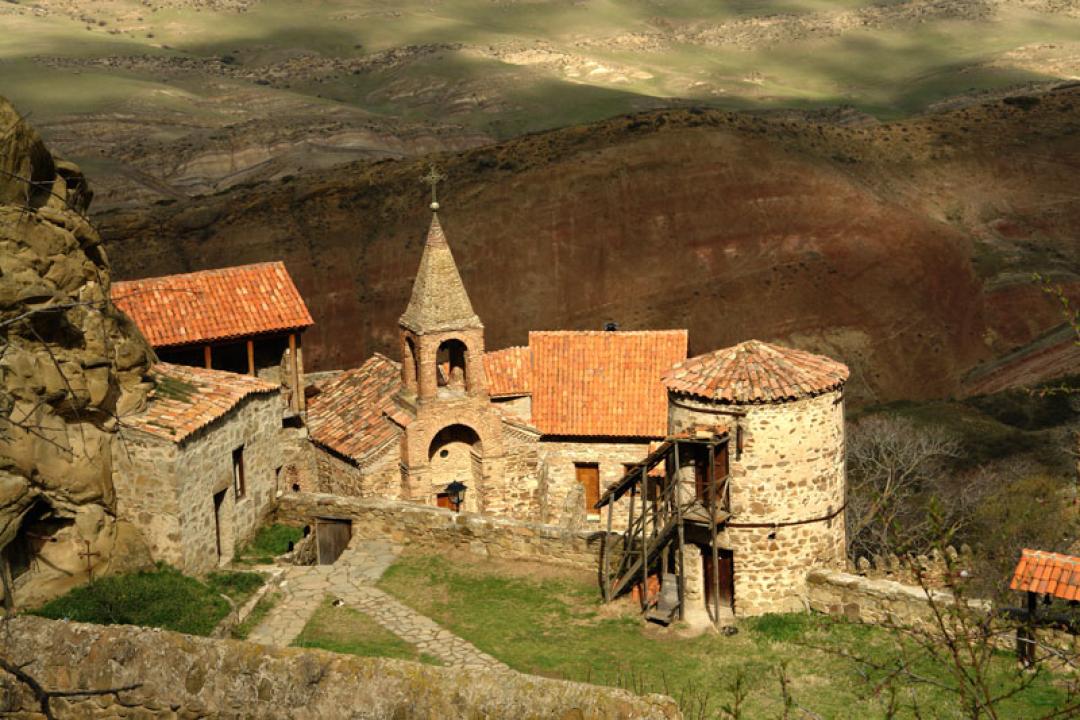
Azerbaijan and Georgia are negotiating the issue of the state border

The ministry of foreign affairs of Azerbaijan announced that the 12th meeting of the commission for the definition and marking of national boundaries between the Republic of Azerbaijan and Georgia took place in Baku from 23 to 24 May. The Azerbaijani delegation was led by deputy foreign minister and special representative of the president of the Republic of Azerbaijan for questions of the border and the Caspian Sea, Khalaf Khalafov. The Georgian side was represented by deputy foreign minister and special representative of the government of Georgia for border issues, Lasha Darsalia. The meeting was also attended by experts and representatives from the relevant government agencies of both countries.
At the meeting, questions in regards to the border crossing should be examined and any unspecified sections should be discussed in detail. Following the meeting, both sides agreed to carry out a joint on-site inspection of non-agreed sections of the state border at the expert level. The negotiating parties also agreed to examine and assess the relevant legal and cartographic information related to the definition of the border. It was agreed to continue the work of the meeting in Tbilisi.
After the meeting, the Georgian president, Salome Zourabichvili, commented on her Twitter account: "I welcome the resumption of the process of marking the Georgian-Azerbaijani state border. I am convinced that the parties in the negotiations are guided by long-standing friendly relations and a strategic partnership between the two countries."
The Georgian foreign minister, David Zalkaliani, stated that nobody should misinterpret the process until the border between the two countries has been finalized. "The commission is discussing specific issues, including the monastery complex, and is also tasked with responding promptly to current developments. There should be no attempts to change the status quo", said the foreign minister.
"Following the collapse of the USSR, the Republic of Azerbaijan and Georgia automatically became the legal successors of the administrative boundaries between them, in accordance with international law. As a result, these borders were declared state borders and put under the control of the border services of both countries," said deputy foreign minister of Azerbaijan, Khalaf Khalafov, following the meeting of the commission. He pointed out that no steps should be taken to create the perception that the status quo could be changed. "The fact is that the border has always been in "Keshikchi Dag" (Azerbaijani name of the monastery) and was guarded by border services of our and the Georgian side. Transits to the caves in the Keshikchi Dag nature reserve were accompanied by Azerbaijani border guards at the request of the Georgian side and by mutual agreement of Georgian pilgrims. This is also the case today. As far as the execution of some economic and other projects on their respective territories is concerned, this is the sovereign right of each party", said the Azerbaijani diplomat. Apparently Khalafov meant the reports that Azerbaijan is building new roads to the monastery.
On 21 April, Azerbaijani border guards blocked access to the part of the monastery located on Azerbaijani territory. The border pass was closed shortly after president Surabishvili's visit to the monastery complex on 20 April. She stressed the need for an immediate restoration of the facility and the discussion of the issue of demarcation between Georgia and Azerbaijan. After four days, the border crossing to the monastery was reopened.
The monastery caves of David Gareja are one of the most important cultural and religious sites in Georgia, where the monastic life is still maintained. Azerbaijan sees the monastery complex as Albanian (Albania was an ancient kingdom in the Caucasus, mainly in the area of today's Azerbaijan) and therefore sees it as its own historical heritage. The monastery caves have long been one of the stumbling blocks in the process of demarcation between Georgia and Azerbaijan. Georgia wants to maintain control of the entire complex and has offered Azerbaijan an area exchange. For Azerbaijan this is out of the question due to the strategic importance of the caves. Both sides have reached an informal agreement allowing Georgians or visitors from Georgia to reach all areas of the monastery until the problem is finally resolved.
Patriarch Ilia II, who is highly respected in Georgia, recently stated that "a third force" is interested in the emergence of serious problems between Georgia and Azerbaijan. This "force" has supporters in both the South Caucasus states. Ilia II called on Tbilisi and Baku to keep a cool head and conduct intensive negotiations to further strengthen and deepen bilateral relations. The Georgian Orthodox Church is ready to contribute, according to him.
Former Georgian president Mikheil Saakashvili, who maintains that he still has good contacts with Baku, offered the Georgian government to serve as an intermediary in the negotiations with Azerbaijan. The likelihood that this offer could be accepted by the government in Tbilisi is considered extremely low, because of the prosecution of Saakashvili in Georgia.
See Also


Mirzoyan Meets US Deputy Assistant Secretary Joshua Huck

Azerbaijani President Holds Talks with UAE and German Business Delegations on Economic Cooperation

Grigoryan Confirms Armenia’s Readiness to Dissolve OSCE Minsk Group Upon Peace Treaty Signing

Azerbaijani Official Warns of Ecological Risks to Caspian Sea, Similar to Lake Urmia and Aral Sea

